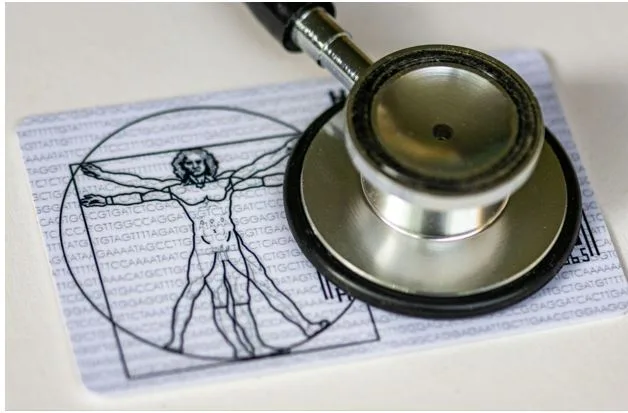Health Management Tips for Better Hair, Teeth, and Mental Balance
Our physical appearance and mental state aren’t separate entities living independent lives, they’re deeply intertwined threads in the fabric of our overall well-being. When your hair starts thinning or your smile loses its brightness, it’s not just about vanity. These changes often signal deeper imbalances that can ripple through your confidence, relationships, and daily happiness. Similarly, when stress takes hold of your mind, it doesn’t stay there quietly; it manifests in grinding teeth, falling hair, and a cascade of physical symptoms that refuse to be ignored.
Modern life throws countless challenges our way: demanding work schedules, processed foods that barely nourish us, screens that steal our sleep, and stress levels that our ancestors couldn’t have imagined. These factors create a perfect storm that affects everything from the strength of our hair follicles to the health of our gums and the stability of our mental state.
The Interconnected Nature of Hair, Teeth, and Mental Health
Your body operates as an intricate system where everything influences everything else. The same nutrients that strengthen your hair also fortify your teeth. The stress that keeps you awake at night doesn’t just exhaust your mind, it triggers hormonal changes that can accelerate hair loss and cause you to grind your teeth unconsciously while you sleep.
Biologically speaking, your hair, teeth, and mental state all depend on proper nutrition, balanced hormones, and manageable stress levels. Meanwhile, chronic stress floods your system with cortisol, a hormone that can disrupt hair growth cycles, weaken your immune system’s ability to fight gum disease, and contribute to anxiety and depression.
The psychological connections run just as deep. Research consistently shows that people experiencing hair loss or dental problems often struggle with lower self-esteem. A receding hairline or discolored teeth can make someone avoid social situations, smile less freely, or feel anxious about their appearance.
Understanding these connections isn’t just intellectually interesting, it’s practically essential. When you recognize that improving one area often benefits the others, you can design more effective, holistic strategies for better health.
Hair Health Management: Beyond Cosmetics
Daily Hair Care Practices
Healthy hair starts with the basics, but many people unknowingly damage their hair through well-intentioned daily routines. Choosing the right shampoo and conditioner matters more than most realize.
Your scalp deserves as much attention as your hair itself. Regular scalp massage improves blood circulation to hair follicles, potentially promoting better growth and definitely helping with stress relief. Spend a few minutes each day using your fingertips to massage your scalp in gentle circular motions. It’s a small investment that pays dividends.
Heat styling tools, harsh chemical treatments, and frequent coloring are among the biggest culprits in hair damage. Every time you apply high heat or strong chemicals, you weaken the hair shaft’s structure. If you must use heat styling, always apply a protective product first and use the lowest effective temperature. Consider extending the time between chemical treatments or coloring sessions—your hair needs recovery time.
Nutrition for Strong Hair
You can’t supplement or style your way out of a poor diet. Hair is primarily made of protein, specifically keratin, which means adequate protein intake is non-negotiable for healthy growth. Include quality protein sources like fish, eggs, legumes, or lean meats in your daily meals.
Omega-3 fatty acids, found abundantly in fatty fish, walnuts, and flaxseeds, nourish hair follicles and support scalp health. Biotin, a B-vitamin, has earned its reputation as a hair-health superstar by helping your body metabolize proteins that build hair structure. Zinc plays a crucial role in hair tissue growth and repair while also helping regulate the oil glands around follicles.
Don’t underestimate hydration’s importance. Water helps transport nutrients to cells, including those in your hair follicles. Dehydration can make hair brittle and more prone to breakage. Aim for adequate water intake throughout the day—your hair, along with every other part of your body, will thank you.
Medical Interventions and Hair Transplant Options
Sometimes, despite your best efforts with lifestyle changes and nutrition, hair loss continues due to genetics, hormonal conditions, or other medical factors. When this happens, it’s worth consulting specialists who can offer targeted solutions.
Modern hair transplant techniques have advanced dramatically, offering natural-looking results that earlier methods couldn’t achieve. Follicular Unit Extraction (FUE) involves harvesting individual hair follicles from donor areas and transplanting them to thinning or balding regions. Follicular Unit Transplantation (FUT) removes a strip of scalp from which follicles are extracted and transplanted. For those considering such procedures, researching options like the safest hair transplant in Singapore can provide access to experienced professionals using cutting-edge techniques in a regulated environment.
Dental Health: Foundation of Confidence and Overall Wellness
Daily Dental Habits
Your teeth and gums need consistent, proper care to remain healthy throughout your lifetime. Brushing technique matters as much as frequency. You should brush for two full minutes, twice daily, using gentle circular motions rather than harsh back-and-forth scrubbing that can damage enamel and irritate gums. Hold your toothbrush at a 45-degree angle to your gum line to effectively clean the junction where plaque accumulates.
Your dietary choices directly impact dental health. Sugar-rich foods feed harmful bacteria that produce acids, eroding tooth enamel. Acidic beverages like soda and citrus juices can weaken enamel over time. If you consume these items, rinse your mouth with water afterward and wait at least 30 minutes before brushing—brushing immediately after acid exposure can actually damage softened enamel.
Preventive Care and Dentist Visits
Regular dental checkups are investments in long-term health, not luxuries to skip when life gets busy. Professional cleanings remove tartar buildup that home brushing can’t address, preventing it from progressing into gum disease. Your dentist can spot potential problems, cavities forming, early signs of gum disease, unusual lesions—when they’re still minor and easily treatable.
Early detection saves you pain, time, and money. A small cavity caught early requires a simple filling, but if left untreated, it can progress until you need a root canal or extraction. Similarly, gum disease caught in its early stage (gingivitis) is reversible with improved oral hygiene, but advanced periodontitis requires intensive treatment and can lead to tooth loss.
Professional fluoride treatments strengthen enamel and make teeth more resistant to decay. If you’re searching for quality dental care with professionals who emphasize prevention and patient education, finding a trusted dentist Newmarket location can provide comprehensive services in a comfortable environment focused on long-term oral health.
Cosmetic and Corrective Dentistry
Beyond health maintenance, modern dentistry offers solutions that boost confidence and quality of life. Teeth whitening can reverse staining from coffee, tea, or natural aging. Veneers provide a way to address chips, gaps, or persistent discoloration. Orthodontic treatments like braces or clear aligners correct misalignment that affects both appearance and function.
Restorative dentistry repairs damage and replaces missing teeth through crowns, bridges, or implants. These treatments aren’t purely cosmetic—they restore proper chewing function, prevent remaining teeth from shifting, and maintain facial structure. When you can eat comfortably and smile confidently, it positively impacts your social interactions and mental wellbeing.
Mental Health and Emotional Balance
The Role of Stress in Physical Appearance
Stress doesn’t just live in your head—it broadcasts throughout your body via hormones and physiological changes. When you experience chronic stress, your body produces elevated levels of cortisol, often called the “stress hormone.” While cortisol serves important functions in short bursts, sustained high levels wreak havoc on your health.
Elevated cortisol can push hair follicles into a resting phase, leading to increased shedding and noticeable thinning months after stressful periods. It contributes to inflammation throughout the body, which can exacerbate skin conditions and gum disease. Stress also commonly manifests as bruxism—unconscious teeth grinding, usually during sleep—which wears down enamel, causes jaw pain, and can crack or loosen teeth over time.
Understanding this connection helps explain why addressing mental health isn’t separate from physical health care—it’s integral to it.
Building Mental Resilience
Developing mental resilience doesn’t mean eliminating stress from your life—that’s impossible. Instead, it means building skills and practices that help you navigate stress more effectively.
Mindfulness and meditation teach you to observe thoughts and feelings without getting overwhelmed by them. Even five to ten minutes of daily meditation can reduce anxiety, improve focus, and help regulate your stress response. Journaling provides an outlet for processing emotions and can help you identify patterns in your thoughts and behaviors that you might want to change.
Cognitive-behavioral techniques offer practical tools for challenging unhelpful thought patterns. When you catch yourself catastrophizing or engaging in all-or-nothing thinking, you can learn to reframe these thoughts more realistically and constructively. These aren’t just abstract concepts—they’re skills you can develop with practice that genuinely improve your daily experience of life.
When Professional Help is Needed
Sometimes self-help strategies aren’t enough, and that’s completely okay. Recognizing when you need professional support is a sign of wisdom, not weakness. If you’re experiencing persistent sadness, anxiety that interferes with daily activities, thoughts of self-harm, or if you’re using substances to cope with emotional pain, it’s time to reach out for help.
Therapy and counseling provide structured support for working through challenges, developing coping strategies, and addressing underlying issues. For those dealing with addiction or severe stress that’s spiraled beyond their control, comprehensive programs offer intensive support. If you or someone you care about is struggling with substance abuse or related mental health challenges, seeking rehab in Auckland services can provide professional guidance and a supportive environment for recovery and rebuilding healthier patterns.
Recovery from addiction creates a powerful ripple effect, improved mental clarity, better physical health, restored relationships, and yes, often noticeable improvements in hair quality and dental health as the body heals from the damage substances caused.
Nutrition and Lifestyle Habits for Comprehensive Health
Diet Essentials
Your diet provides the raw materials your body uses to build and maintain itself. Whole foods rich in vitamins A, C, D, and E support immune function, skin health, and cellular repair. Vitamin A promotes healthy sebum production in your scalp, while vitamin C is essential for collagen production that keeps gums strong.
Calcium and vitamin D work together to maintain strong teeth and bones. Your teeth’s enamel is the hardest substance in your body, but it still requires adequate calcium to stay strong. Vitamin D helps your body absorb calcium effectively, making the partnership crucial for dental health.
Protein and iron are particularly important for hair health. Iron deficiency is one of the most common nutritional causes of hair loss, especially in women. Include iron-rich foods like lean meats, spinach, lentils, and fortified cereals in your diet. Pair plant-based iron sources with vitamin C to enhance absorption.
Lifestyle Choices
Sleep deserves recognition as a cornerstone of health, not a luxury to sacrifice when life gets demanding. During sleep, your body conducts essential repair and maintenance work. Adults need seven to nine hours of quality sleep regularly for optimal physical and mental health. Establish a consistent sleep schedule, create a relaxing bedtime routine, and make your bedroom a sleep-friendly environment.
Limiting caffeine, especially in the afternoon and evening, helps protect sleep quality. While moderate alcohol consumption might not cause obvious problems, excessive drinking interferes with nutrient absorption, dehydrates your body, and disrupts sleep architecture.
Regular exercise offers benefits that extend far beyond physical fitness. It boosts circulation, delivering oxygen and nutrients to your scalp, skin, and gums. Exercise reduces stress hormones, promotes better sleep, and helps maintain hormonal balance. You don’t need intense workouts, moderate activity like brisk walking, swimming, or cycling several times weekly provides substantial benefits.
The Impact of Bad Habits and How to Overcome Them
Hair and Teeth Damage from Addictions
Unhealthy habits don’t just affect your overall health; they leave visible marks on your appearance that can accelerate over time. Smoking stains teeth with tar and nicotine, turning them yellow or brown. It also damages gum tissue, reduces blood flow to the gums, and significantly increases the risk of gum disease and tooth loss. The same restricted blood flow affects hair follicles, potentially contributing to thinning and premature graying.
Substance abuse often coincides with neglect of basic self-care, people in the grip of addiction may stop brushing their teeth regularly, eat poorly, and ignore health problems until they become severe. The mental decline that accompanies substance abuse creates a feedback loop where depression or anxiety makes it even harder to maintain healthy habits.
Seeking Help Through Rehab
Breaking free from addiction typically requires more than willpower alone. Rehabilitation facilities provide structured environments where people can safely detoxify, address underlying psychological issues, learn coping strategies, and build foundations for lasting recovery.
The positive effects of recovery extend into every area of life. As people regain control over their health, they often notice their hair becoming healthier as proper nutrition resumes and stress decreases. Dental health improves when regular brushing returns and the damaging substances are removed. Mental clarity returns, relationships heal, and self-esteem rebuilds.
Recovery is rarely linear or easy, but it’s always worthwhile. The transformation that occurs when someone commits to health, mental, physical, and emotional—is remarkable and demonstrates the resilience of the human body and spirit.
Holistic Approaches: Integrating Self-Care, Medical Help, and Mindset
True wellness emerges from combining multiple approaches rather than relying on any single solution. You might work with professionals, a dermatologist for hair concerns, a dentist for oral health, a therapist for mental wellbeing, while also maintaining daily self-care practices like meditation, proper nutrition, and exercise.
This integrated approach recognizes that a hair transplant or dental restoration might restore your appearance, but without addressing stress management and lifestyle factors, you’re missing opportunities for comprehensive improvement.
Adopting a preventive care mindset shifts your focus from reactive problem-solving to proactive health maintenance. Regular health checkups, stress management before it becomes overwhelming, and balanced lifestyle choices prevent many problems from developing in the first place.
Building Long-Term Routines for Sustainable Health
Sustainable health changes come from building routines that fit naturally into your life rather than relying on willpower for constant motivation. Start by creating a weekly hair care routine that includes gentle cleansing, scalp massage, and any treatments your hair needs. Schedule these consistently so they become automatic.
For dental health, schedule regular visits with your dentist, typically every six months, and set them as non-negotiable appointments in your calendar. Make your daily oral hygiene routine thorough but efficient, so it doesn’t feel like a burden.
Daily stress-relief rituals might seem indulgent, but they’re essential investments in your wellbeing. Whether it’s ten minutes of meditation, a brief walk in nature, or simply stepping away from screens to breathe deeply, these practices accumulate benefits over time.
Conclusion
The path to better hair, brighter teeth, and balanced mental health isn’t about perfection, it’s about understanding connections and making consistent, informed choices. Your hair, teeth, and mind aren’t isolated aspects of your being; they’re interconnected expressions of your overall health, influenced by nutrition, stress, habits, and the care you provide.
The journey toward wellness is ongoing, but every small step matters. With the right combination of self-care, professional guidance, and commitment to healthy habits, you can enjoy stronger hair that makes you feel confident, a bright smile that you share freely, and a calm, resilient mind that helps you navigate life’s inevitable challenges with grace.




